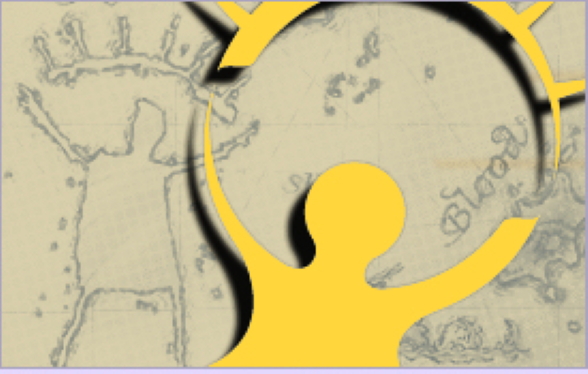
Conducted by elTee.
What the hell is going on?
Sorry. I just realised that for some reason there is a new Monkey Island game installed on my computer, and that it's really great, and that it isn't 1992. And when I was so filled with nostalgia that I decided to return to the original game, after just a few seconds the graphics had segued into something eerily widescreen and 21st century. Guybrush was talking and sounds were coming out of my speakers.
'Don't worry', I told myself. 'This is just one of those acid-flashbacks they always warned you about. Enjoy it while it lasts. Because, oh boy, when it ends it's back to reality.' And as we all know, in reality LucasArts make Star Wars games.
What the hell is going on?
Repeat it many times, perhaps. Because this is reality. And unless I'm having a bad psychotic break, The Secret of Monkey Island: Special Edition – and Tales of Monkey Island, for that matter – are definitely not Star Wars games. I mean, what next? They could even re-release Loom!
Oh God, I laughed so hard just then that milk came out of my nose and short-circuited my keyboard. I smashed my fist into it until it worked again, and somehow my bloodied knuckles managed to type in 'steam' into the address bar of my browser. I mean, you know where I'm going with all this gibberish.
To a wizened old spectre like myself, just being able to buy a non-second hand copy of Loom anywhere in the world is even more astonishing than new Monkey Island material appearing. I mean seriously, what the hell is going on? Loom?
So, even despite the whole falling out thing that happened in 2004 (can anyone even remember what that was about?) I knew it was time to talk to LucasArts.
Luckily for us all, Mary Bihr – Vice President of Global Publishing – has not only worked at LucasArts for twenty years, but she's friendly enough to take some time out and answer my annoying questions. If anyone could tell me what the hell was going on, it would probably be her.
Editor's Note:
elTee's enthusiastic plan to conduct the interview by telephone was quickly cancelled. Although his celebrated argument with Terry Rossio was quite amusing in retrospect, the main boss (Jake Rodkin) is still annoyed about the time he was interrupted from playtesting Psychonauts with Tim Schafer due to drunken phonecalls from the same staff member. C'est la vie, elTee.
Mixnmojo: The Secret of Monkey Island: Special Edition came out on Xbox Live on the 15th of July, and recently the Wii version of Indiana Jones and the Staff of Kings came bundled with the classic Fate of Atlantis. With classic titles now also available on steam, what are the chances of us getting these games through Microsoft, Sony and Nintendo's digital distribution systems in the future?
Mary Bihr: The announcement last week was just the beginning. Our aspirations are to provide consumers, regardless of their platform of choice, with the ability to play our Heritage and new titles. Once we see fan reactions on Monkey Island and the other heritage titles we announced, we'll make decisions on what is next and on what platforms.
Mixnmojo: On a similar note, LucasArts also produced some classic console titles in the 90s. Zombies Ate My Neighbors on the SNES, Maniac Mansion on the NES, and Shadows of the Empire on the N64 to name a few. With Nintendo's Virtual Console system proving popular amongst nostalgic gamers, do you think LucasArts will be dipping its toes in these waters too?
Mary Bihr: The power of digital distribution is that it provides consumers with several on-ramps to enjoy content. All the platform owners all are developing compelling direct to consumer platforms and it is our goal to be a leading publisher across the full spectrum of digital pipelines. Certainly, Nintendo's Virtual Console system includes a population of nostalgic gamers that we hope will enjoy our Heritage games at some point, and we will continue to explore these opportunities. We're looking at the best places to re-engage our fans, as well as make new ones.
Mixnmojo: I'm sure the idea of re-releasing The Secret of Monkey Island has been suggested at LucasArts before, but how far back does the idea of re-making the game go?
Mary Bihr: The Secret of Monkey Island: Special Edition has been in the works for about a year now. It's a passion project for our president Darrell Rodriguez and has company wide support. On that basis, we created an internal team dedicated to bringing these beloved titles back to consumers, both either 'as is' or via special editions, such as The Secret of Monkey Island.

Mixnmojo: Telltale are a company that have many ex-LucasArts employees on the payroll. Did they approach you with the idea of making a new, episodic Monkey Island title, or was it the other way around? If so, why did you choose Telltale Games for the job?
Mary Bihr: The idea of a new, episodic Monkey Island was by mutual agreement. Dan Connors, the president of Telltale Games met with Darrell Rodriguez and me, we talked about the concept of bringing back Monkey Island, and the idea grew on both sides. We were excited about the work Telltale Games had done with Sam and Max. They offered a business model that was a new way of re-imagining graphic adventures.
Plus, they have an incredibly creative staff and a shared passion for re-engaging with our fans.
Mixnmojo: How do you feel about the other games companies whose staff are comprised of former LucasArts staff - companies like Double Fine (Tim Schafer), Hothead Games (Ron Gilbert) and Autumn Moon (Bill Tiller)? Ron Gilbert recently referred to LucasArts as his "alma mater", and "like a family" - do you feel likewise?
Mary Bihr: Absolutely. LucasArts is a family and although these industry leaders do not work at the company anymore, they will always be considered part of the LucasArts legacy
Mixnmojo: In 2008, something strange and nostalgic happened - some old Maniac Mansion posters were discovered, and put on sale. They sold out within 24 hours - did this unlikely evidence that there was still interest in the old titles play any part in the decision to revisit them?
Mary Bihr: It is definitely evidence that there still are loads of fans out there for our heritage titles. I can't say though that the selling of the old posters made our decision to re-release these titles. It's something that we've wanted to do for a long time, but it had to make business sense.
Mixnmojo: In the last few years LucasArts has downsized considerably. Does the company feel more like it did in the old days now, with smaller teams working on more personal projects? Perhaps a sense that the company is 'returning to its roots'?
Mary Bihr: It truly is a great time to be at LucasArts right now. In addition to the heritage products we just released, we have teams working on games including the Clone Wars franchise, Lego Indiana Jones 2 and the Battlefront handheld game, and of course The Old Republic. We also have several unannounced projects in the works that we hope will excite fans.
Mixnmojo: It appears from your official forums and your twitter page that you're taking a much greater interest in fan opinions than ever before. Is this a conscious change in policy, or perhaps just an indication of the way the games industry works in 2009?
Mary Bihr: I think it's a combination of both. With the increased adoption of social networking – twitter, facebook, myspace, YouTube – the game industry has an opportunity to engage directly with customers and fans on an unprecedented level. At LucasArts, we're in a unique position of having a rich history of heritage titles with a loyal and vocal fanbase. We've always believed that while we are fans ourselves, whenever possible we should carefully listen to our fans who share the passion for our brands as much as we do. This will help inform the decisions around which heritage titles to release next and more. With that in mind, we have bolstered our community outreach programs, including facebook pages for most of our titles and a twitter feed which will serve to announce all of our future heritage releases. It's constantly changing and we're learning as we go, but we're quite happy with the results so far and hope that our fans agree.
Mixnmojo: How much of a role does George Lucas have in the day-to-day activities of LucasArts? Tim Schafer once described him 'coming to visit' the team during the making of The Secret of Monkey Island in 1990, and offering his advice on the title. Was he involved in the decision to revisit it?
Mary Bihr: Definitely. George is involved at a high level with everything we do. He approves and gives feedback on all projects, concepts and stories.
Mixnmojo extends its thanks once again to Mary Bihr, and all the helpful LucasArts staff behind the scenes who helped to make this interview happen. We love you again! But remember how fickle we are :-(
